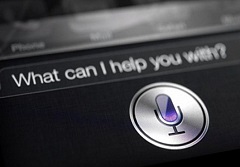The entry of Apple and Google into the connected car market is set to fuel adoption of in-vehicle apps, with predictions the iPhone maker will see more than 24 million new cars using its CarPlay service by 2019.
A new report from ABI Research said Apple has been boosted by a range of car manufacturers, including Ford, BMW, Audi, Mercedes, Jaguar/Land Rover, Toyota, Nissan, and Volvo, that have announced they would build cars with CarPlay capabilities.
CarPlay, which was launched earlier this year, allows drivers to make and receive calls using Siri, get directions and access audio content.
Other device manufacturers, including Samsung, LG and HTC, have joined the Car Connectivity Consortium, which developed the MirrorLink standard for connecting smartphones to cars. ABI said that while the roll out of MirrorLink will be “fairly significant”, it said more cars would feature CarPlay.
However, Apple could face a threat from Google, which launched its Android Auto standard last month. It plans to start an Open Automotive Alliance to work with car makers.
ABI Research said the car industry was concerned about a lack of open standards, which could benefit Google. Without open standards, there would be greater concerns about incompatibility and whether a company is backing the right standard.
The research house said Android Auto has the backing of more than 40 car makers and more announcements are expected by early next year.
Filomena Berardi, Senior Analyst, commented: “Many believe Apple is creating further fragmentations and a ripple effect in the industry by not being open. However, love it or hate it, with Apple on the scene it certainly draws greater attention to in-car apps and now with the Android Auto standard on the scene both will certainly drive adoption of in-car apps.”
Read more:



